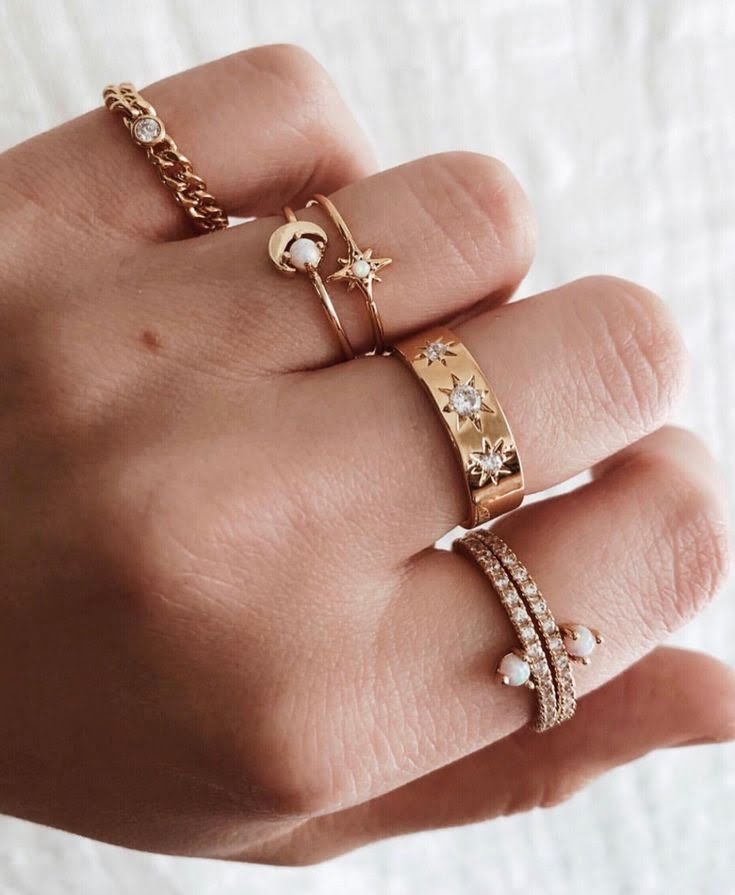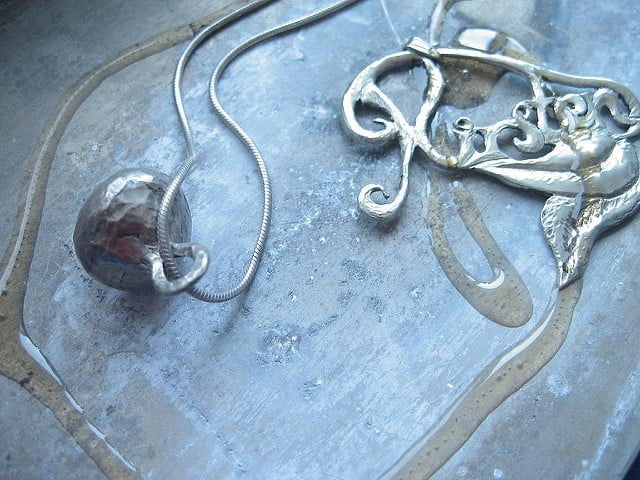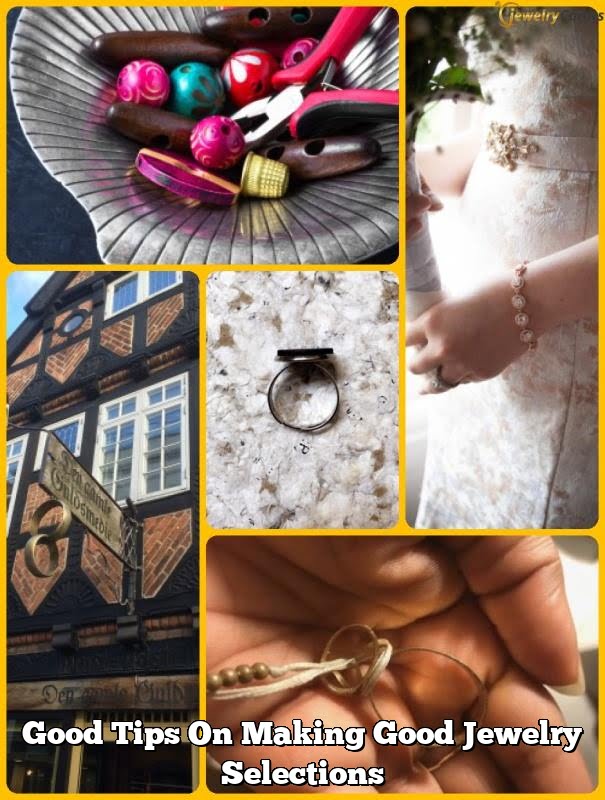Jewelry cleaners are products designed to help keep jewelry looking shiny and new. Jewelry cleaners work by dissolving the oils from your skin and dirt, which can dull its appearance over time.
Additionally, jewelry cleaner will remove tarnish, oxidation, calcium deposits, moisture and other blemishes that tend to appear on jewelry pieces with age and regular wear. However, it is essential when choosing a jewelry cleaner that you select one which is suited for the type of metal your piece is made from because each metal requires a different solution or cleaning product.
Types of Jewelry Cleaner One of the most popular types of jewelry cleaner on the market is an ultrasonic machine. This machine uses sound waves to create tiny bubbles in water containing special detergent-like agents that can get into all the nooks and crannies of your jewelry pieces and help remove gunk build up quickly and easily.
While this type of cleaning solution may be more expensive than other options available, it’s well worth it due to its effectiveness in removing build up from even hard to reach places with ease.
Another type of popular option for many people when looking for a good jewelry cleaner are liquid or aerosol sprays that contain active ingredients specifically designed for particular metals such as gold or silver. These products usually come with instructions so you know how long you need to soak your item in the solution before wiping away any dirt or grime build-up.
Not only are these solutions easy to use but they also require minimal effort on your part while still achieving great results.
Cleaning Solutions You Can Make at Home In addition to store-bought cleaning solutions there are also several homemade recipes you can try as well. One great way is to mix equal parts warm water and baking soda until you get a thick paste then gently rub onto the item with a soft cloth until all dirt particles have been removed.
You can also make a similar combination using mild dishwashing soap instead of baking soda as well as distilled white vinegar or lemon juice if you wish depending on what material your piece is made from. Alternately you could opt for an old-fashioned option such as using toothpaste mixed with some cornstarch in order to scrub down any buildup left by regular use without harming your precious piece itself.
What Types of Jewellery Can Be Cleaned with a Jewelry Cleaner?
Jewelry cleaners are great for cleaning everything from metal and stone jewelry, to beadwork and pearls. Not only do they keep your treasures sparkling like new, but they also help preserve their condition over time. With so many different varieties of jewelry available, it can be difficult to find the right cleaner to suit your needs. Luckily, there are several common options on the market that make it simpler to clean a variety of items.
Metals like silver and gold are best kept clean with an ultrasonic jewelry cleaner, or a steam cleaner specifically designed for jewelry. These cleaners work by using high frequency sound waves or pressurized hot steam to dissolve dirt and particles around delicate or complex pieces. Ultrasonic cleaners are particularly suitable for intricate pieces which could be otherwise too delicate for manual cleaning by hand or with a brush.
Pearls require special attention as they are sensitive to chemicals and acids in cleaning solutions which can damage the surface of the pearl over time. A mild liquid formula is a safer option when it comes to these precious gems; some ingredients gentle enough to be used include household soda bicarbonate or detergent made specifically for jewelry care products.
Gemstones such as sapphire, diamond, ruby, quartz etc can also benefit from specialized jewellery cleaners – either liquids specifically designed for gemstone use or wax polishes which provide an extra layer of protection without impairing the brilliance if used properly.
Lastly there is costume jewellery which consists of less expensive metal elements usually plated with gold or silver – this type of jewelry requires less intensive cleaning than fine jewelery and is more easily dealt with using simple soap solutions gently wiped off with soft cloths thereafter rinsed in running water and dried appropriately.
Cleaning your jewelry at full moon can help give it an extra boost – full moons symbolize beginnings and endings so by cleansing any items you wear during its light you open those objects up to new potential energy while breaking away from any stagnancy formed in them before.
What Are the Advantages of Cleaning Jewelry?
Clean jewelry serves as an excellent way to keep everyday wear and tear from producing damage that could be difficult and expensive to repair. When a piece is kept adequately clean, it can last longer and retains its value over time.
Cleaning also increases the sparkle and luster of the metal which adds a great deal of beauty both in display pieces and in everyday wearing. By keeping the stones clean, it also helps enhance the setting, allowing people to admire any gems that may have been embedded within the metal or found as part of the design.
In terms of finding a good jewelry cleaner, there are many options on the market. Most traditional jewelers can provide customers with their own specific cleaner formula, but many cleaning options can be found at department stores or online retailers as well.
A lot comes down to personal preference when attempting to determine which type of cleaning solution would work best for different types of jewelry; however, using a polishing cloth specifically designed for gold or silver is highly recommended as it’s much gentler on those types of metals.
When looking for natural cleaners, there are surprisingly simple remedies available such as toothpaste or club soda that can help retain a jewelry’s shine without doing much damage. Hot water is also an adequate cleaner for some types of jewels; however it should never be used for items made out of softer materials such as pearls and opals due to potential damage from heat exposure.
Regardless of one’s method chosen, regular care can go a long way in preserving precious jewels through allowing them to look beautiful while staying protected from dirt build-up.
Step-by-Step Instructions on How to Clean Jewelry Properly
Soapy Water Solution
A simple and inexpensive solution to cleaning jewelry is a mild soapy water solution. This can be made with just a small amount of dish-soap diluted in lukewarm water. Immerse the jewelry into the mixture, and then gently scrub it with an old toothbrush. Rinse the item when you’re finished, and dry thoroughly with a soft cloth.
Vinegar Soak
If your piece of jewelry contains pearls or gemstones, you’ll want to avoid using a soapy water solution as these may have a reaction to it. Instead, opt for a distilled white vinegar soak. To make this solution, mix two parts vinegar to one part warm water and let your jewelry soak for up to 30 minutes then scrub gently with an old toothbrush and rinse thoroughly with clean water afterwards.
Ultrasonic Cleaner
If you want to get even better results than the methods listed above, then you may wish to invest in an ultrasonic cleaner. These devices use high frequency sound waves to power off dirt and tarnish from harder-to-reach areas of your jewelry. All ultrasonic cleaners come with instructions – simply follow them carefully when using this type of device.
What to Consider When Choosing the Right Jewelry Cleaner
1. Know your jewelry: The type of metal you have, the stones and material being used, and any current imperfections or desired outcomes should all be taken into account when selecting the best jewelry cleaner for you.
2. Think carefully about which cleaning method you want to use: Do you prefer a natural homemade cleaner, or are you looking for an easier-to-use store bought option? Each has its own advantages and disadvantages depending on your individual needs.
3. Speak to a professional: If in doubt, it’s always worth speaking to a qualified jeweler or cleaning expert who will be able to advise the best cleaning solution for your jewelry and its characteristics.
The Best Kinds of Jewelry Cleaners
And with that said here is a list outlining some of the most commonly known jewelry cleaners:
- Vinegar and Baking Soda Mix : A mixture of vinegar and baking soda creates a paste that can be applied carefully onto metal or gemstones for gentle polishing.
- Ultrasonic Jewelry Cleaner : Ultrasonic cleaners are electronic devices that vibrate polarized liquids (usually water) at varying degrees – used to remove buildup from crevices quickly, without causing any damage.
- (Detergent/Soap Mixture): This simple yet effective solution is perfect if you’re dealing with minor build up on metal surfaces such as gold, silver or platinum. Just one part liquid soap to two parts warm water will do the trick.
- Jewelry Steam Cleaner : This technique involves directing a precise jet of steam towards precious gems in order to remove dirt naturally. It’s also a relatively quick process.
- Commercial Jewelry Cleaners : These specialty solutions contain ingredients specifically designed for safely cleaning jewelry items such as diamonds, emeralds, gold and silver.
Popular Commercially Available Jewelry Cleaners
If you have a favorite piece of jewelry that you want to spruce up, using a good jewelry cleaner is essential. With so many options on the market, it can be difficult to decide which is the best choice. There are several popular commercially available jewelry cleaners to choose from and each has its own benefits.
Sonic Jewelry cleaners are one of the most popular choices for at-home cleaning. These machines utilize ultrasonic waves to vibrate dirt and oils from jewelry. They can also feature heated water tanks, giving your pieces an extra deep clean without being too damaging or abrasive. The downside to these cleaners is that they can be expensive and bulky. However, if you have several pieces of high-quality jewelry to clean, they are definitely worth the investment.
Dipping solutions are another great option for removing dirt and grime from jewelry. These solutions use harsh chemicals like ammonia or acetone in order to break apart oily residue and make them easier to clean away with a soft brush or cloth. Although these solutions do not require as much effort as sonic cleaners, they can sometimes be too powerful and cause damage depending on the type of material your jewelry is made of.
Homemade cleansers are also growing increasingly popular amongst people hoping to get their pieces sparkling again without breaking the bank. Common materials used in DIY recipes include baking soda, white vinegar, liquid dish detergent and even vodka (which has antiseptic qualities).
If you enjoy DIY projects but don’t want something too aggressive or time consuming then this may be ideal for you. The downside to this method is that it’s sometimes unpredictable; there’s no way of knowing how your items will react since ingredients like vinegar can differ in strength from one brand to another.
DIY Jewelry Cleaners to Try
When it comes to cleaning Jewelry, many people like to take a DIY approach for various reasons. For one, it can often be more convenient and economical to make your own jewelry cleaner at home than to buy expensive cleaning solutions that may or may not be effective.
Additionally, it can be an enjoyable task as well – mixing up ingredients that you probably already have lying around the house can be a fun way to give your Jewelry some sparkle and shine.
One of the most commonly used DIY Jewelry Cleaners is a mixture of baking soda and water. This combination forms a very gentle abrasive which is excellent for scrubbing away grime while still being delicate enough for even the most fragile pieces.
To make this cleaner, simply mix baking soda with hot water in varying proportions until you get the desired consistency; if it’s too thick to use, just add more water; if it becomes too runny then add some more baking soda.
Once you have mixed the solution together, simply apply some of it onto a soft cloth and rub gently onto the surface of your Jewelry – don’t scrub too hard though. Despite being very mild on your Jewels, baking soda is surprisingly effective as all kinds of dirt tends to stick easily onto its slightly moist texture – making for an effortless clean.
Another popular DIY jewelry cleaner recipe involves combining vinegar and dish soap (two ingredients that are likely already around) into a paste-like consistency before adding warm water into the mix until you get your desired or preferred consistency again. Once you have gotten everything mixed together satisfactorily, dip a soft cloth into the solution before simply rubbing gently onto exposed jewelry surfaces – take care not to leave any residues behind however.
A great advantage of this DIY cleaner is that it’s suitable for almost all types of jewelry materials including gold and silver metals; also interestingly enough, this same solution can also work effectively as an eyeglass cleaner.
Summary
Jewelry cleaners are an absolute necessity if one has a significant collection of jewelry and wants to keep it in pristine condition. If you own some valuable gems such as diamonds, emeralds, rubies or sapphires, it is highly recommended that you use a specific jewelry cleaner as this will ensure that the delicate metals and precious gemstones do not become dulled or scratched over time.
Not only is it important to look after your collection of jewelry and make sure it stays in prime condition, but it can also be beneficial for reselling purposes so that the items can be appraised at their true value.
A good jewelry cleaner should ideally be made of natural products as this means that there’s a lower risk of irritating sensitive skin which can happen with chemically-based cleaning products.
A general rule of thumb for carefully maintaining your cherished pieces is to start by using a soft cloth or brush and warm water with some mild detergent if needed to remove grease build-up then finish off by pat drying it with another cotton cloth before collecting your sparkles again.
If even after thorough cleaning there remains stubborn dirt on the jewelry then use an appropriate concentrate designed for silver items such as silver polishing cream solution and an old toothbrush to raise the metal finish and bring back its natural sparkle. Be sure though not to leave any residue from the cleaning process which might attract moisture like saltwater when exposed to humid environments – something often encountered when traveling with one’s precious possessions.
Alternatively diamond jewelry or other items with intricate designs should not be polished too vigorously meaning even a soft cotton ball soaked in clear alcohol provides excellent results in terms of removing daily grime buildup without causing disproportionate damage on topography areas.
At the bottom line, choosing the right jewellery cleaner based on individual needs depends largely on personal preference and practical options available, emphasizing practicability over spending more money unnecessary thus saving it for other life priorities instead.

Welcome to my jewelry blog! My name is Sarah and I am the owner of this blog.
I love making jewelry and sharing my creations with others.
So whether you’re someone who loves wearing jewelry yourself or simply enjoys learning about it, be sure to check out my blog for insightful posts on everything related to this exciting topic!





